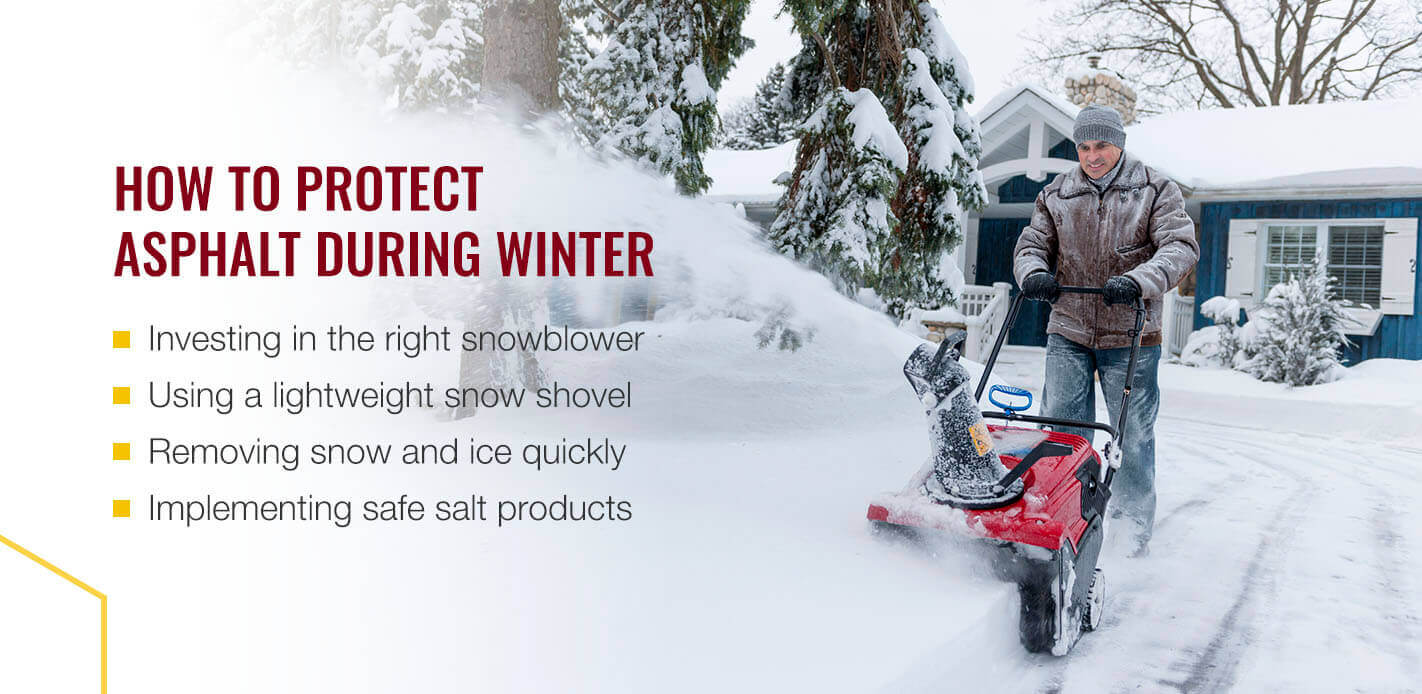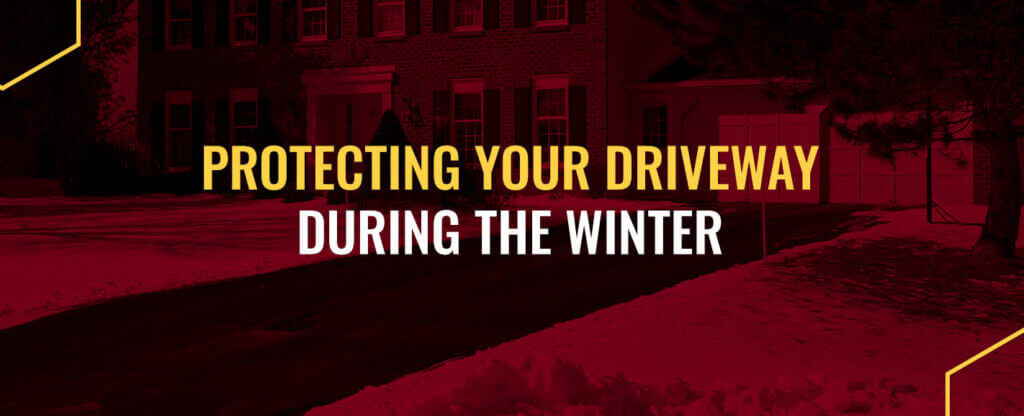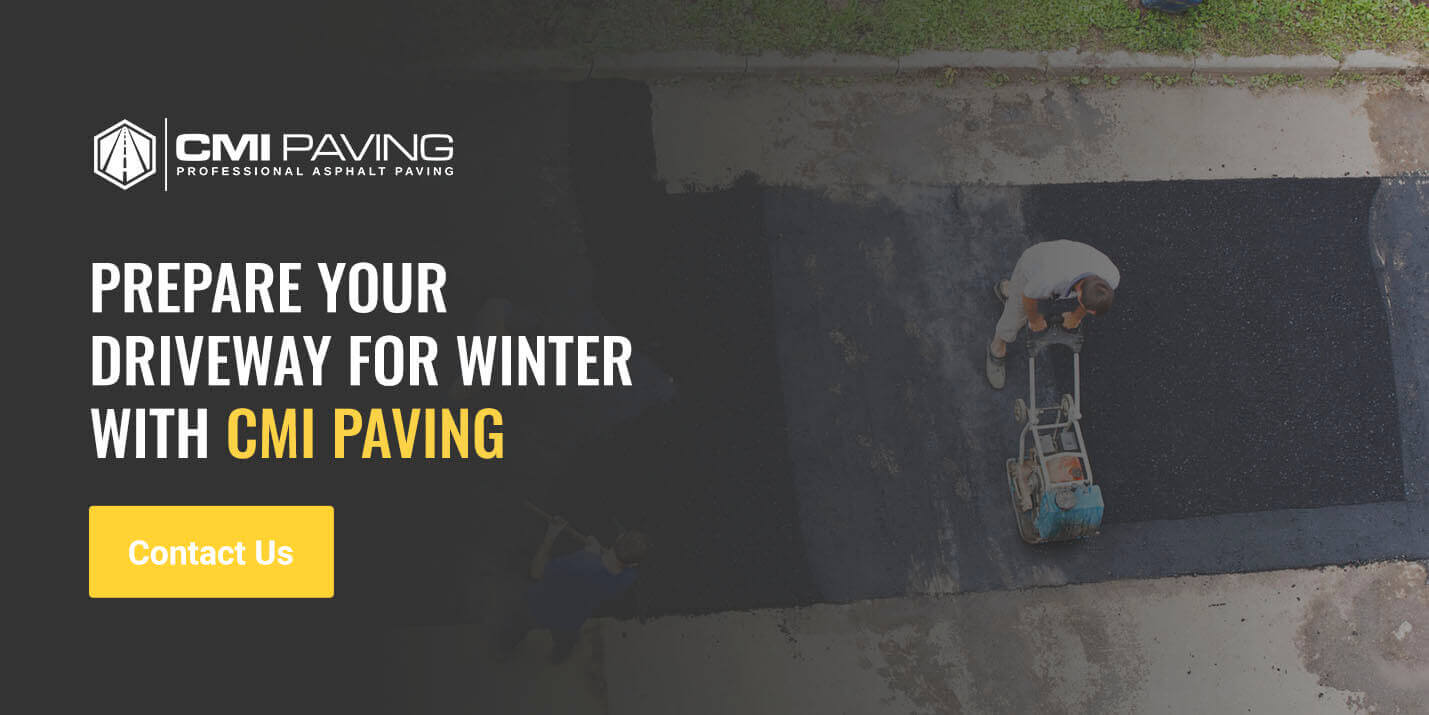How to Protect Your Driveway During Winter
Protecting Your Driveway During the Winter
While winter often means beautiful snowfalls, fun seasonal activities and happy holidays, winter can also cause extensive damage when it comes to your driveway. Keep reading to discover what ways winter can impact your driveway’s quality and how you can better prepare it for this season.
View More Asphalt Driveway Resources
- Asphalt vs. Concrete Driveway
- Can You Put Asphalt Over Concrete?
- Best Time to Pave Your Driveway in PA
- How Wide Should Your Driveway Be?
Common Culprits of Winter Driveway Damage
Winter pavement damage can have many causes. Understanding the common problems and dangers can help you better care for your asphalt this winter.
1. Water
Water is dangerous to driveways regardless of the season because asphalt and concrete are porous. In the winter, water freezes in the pavement, expanding as it does so. This expansion can increase pressure within the pavement, causing it to break and crack.
Sub-grade materials below the pavement can also become saturated with water, freeze and expand, pushing the driveway higher. When it condenses again after thawing, it leaves a gap between the pavement and can cause the driveway to collapse.
2. Snow
Some places get several inches or feet of snow during the winter. When snow piles up, it can get heavy and put lots of pressure on driveways. The weight can weaken areas with cracks, increasing the chance of more comprehensive cracks or potholes when the snow melts. Without proper drainage, snow can melt into pools of standing water that can seep into driveways and cause damage.
3. Snowblowers
Do snowblowers damage driveways? They can be great tools, but the wrong model or integration can scratch your driveway’s surface, weakening its strength and increasing the chance of cracks. They can also catch on existing gaps and potholes, making them worse.
4. Shovels
Shoveling snow is essential for preventing snow buildup on driveways. Like snowblowers, they can scratch pavement and create more cracks.
5. De-icing Salts
Many people and organizations invest in de-icing salts to prevent snow from freezing and streamline melting. However, some de-icing salt solutions can harm your asphalt and concrete pavements. Salt can seep into the pavement and attract water, causing driveways to become more saturated with water. These products also contain harmful chemicals that can damage ecosystems when they become runoff.

How to Protect Asphalt During Winter
How can you protect your driveway during winter? While winter poses so many unique dangers and challenges to asphalt and concrete quality and strength, your actions can influence its condition in spring. Some techniques you can implement this winter include:
- Investing in the right snowblower: Snowblowers come in many models and phases. Single-phase snowblowers harm driveways because you can’t adjust the auger height, meaning it’s more likely to scratch your pavement. Instead, consider a two- or three-phase option. These models offer increased power and functionality, so you can better remove shallow or deep snow piles.
- Using a lightweight snow shovel: Snow shovels are a great alternative to snow blowers if you get less snowfall. Metal shovels are more likely to scratch pavement, so lightweight plastic models are better for preventing accidents when removing snow. When shoveling, avoid sharp angles to decrease the possibility of scratches.
- Removing snow and ice quickly: Standing snow can cause many problems, like added pressure and standing water from melted snow. When snow starts to fall, you can better preserve your pavement’s quality and strength by shoveling or snow-blowing sooner.
- Implementing safe salt products: While salt and de-icing products can be harmful, they’re effective ways of getting rid of winter weather byproducts. Protect your pavement by choosing the right products when you want to use this ice and snow removal method. Magnesium chloride and calcium magnesium acetate salt solutions are better for asphalt driveways. Putting sand over pavement can also block the salt from seeping into your asphalt.
Protecting your driveway from freezing and getting damaged during the winter can reduce the maintenance required for the spring. You can save money and time on extensive repairs while maintaining your driveway’s functionality and life span.
How to Prepare Your Asphalt for Winter
When determining how to protect your driveway from cracking during the winter, the actions you take throughout the rest of the year can better prepare your pavement for the cold. Some preventative and protective strategies include:
- Sealing pavement before winter: Sealants can help pavement resist moisture and chemicals, providing more comprehensive protection and care. When winter weather makes water damage more dangerous, sealing your pavement can prevent snow and ice melts from saturating your concrete and asphalt for more durable pavement. You can invest in a salt-resistant sealant to reduce the damage salt can do to your surfaces. The pavement needs resealing every couple of years, so schedule an appointment while it’s warm.
- Fixing existing cracks and potholes: You can increase your pavement’s durability for winter by repairing it. Patching cracks and potholes before winter provides fewer places for water to seep in and improves the structural integrity of your driveway.
- Adding proper drainage: Water needs a place to move, whether from rain or melting snow. Water is more likely to seep into pavement if it can sit for extended periods with nowhere to go. During the warmer months, you can prepare your pavement for winter by ensuring you have solid drainage systems. The pavement should slope outwards, encouraging water to flow away from the center.
- Cleaning pavement frequently: Your driveway might see increased traffic or activity in the summer when the days are longer and warmer. Many people wash their cars on their driveways, exposing them to chemicals and substances that can seep into the asphalt and concrete and weaken it. You can increase your driveway’s strength for the winter by regularly power washing chemicals or soaking them up with cat litter.
Preparing your pavement for the winter is essential for reducing risks and damages when it gets colder. Many pavement companies offer fewer services in the winter because asphalt and concrete harden too fast in the cold, making it challenging to set properly. These techniques can help you better maintain your asphalt’s quality and reduce the number of repairs you’ll have to make in the spring.
Prepare Your Driveway for Winter With CMI Paving
When you want to improve your driveway before winter, partnering with the right paving services can provide you with the necessary assistance and resources. CMI Paving is an expert in pavement solutions and concrete services.
As winter approaches, we can prepare your driveway for colder winter with our driveway repair services. By patching existing cracks and potholes, your driveway can better withstand the cold and snow. To help you manage snow melts and heavy rains, we can create a more effective drainage solution for your paved spaces. We’ll calculate the perfect slope to guide water away from your driveway and implement catch basins for water to gather.
Contact CMI Paving today to protect your driveway this winter.


